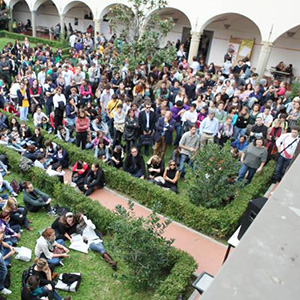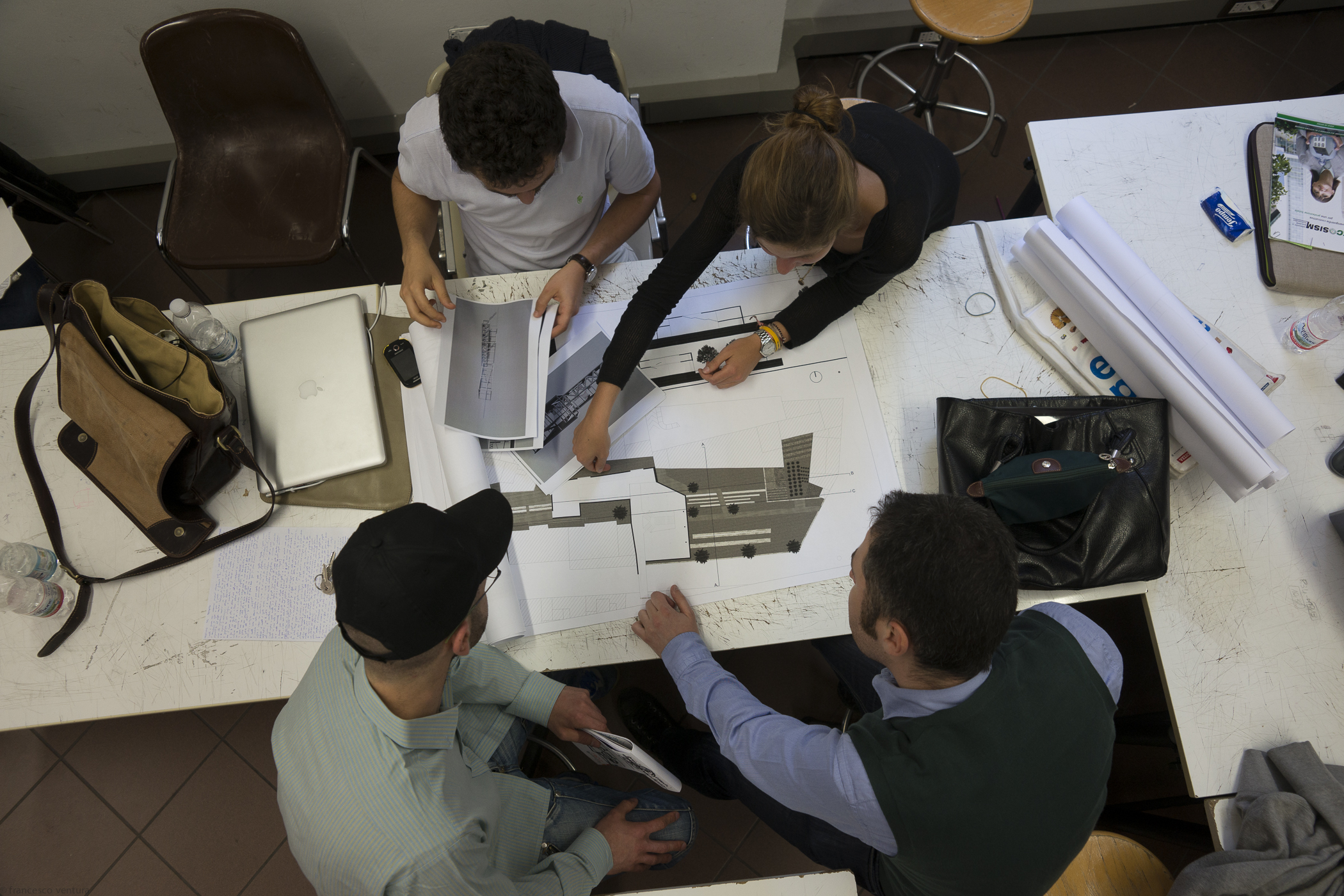|
Culture and Science of the project
The new Department of Architecture DIDA identifies its scientific and educational area in the culture and science of the project in architecture, industrial design, spatial planning and landscape, understood as a synthesis between aesthetic and humanistic, scientific and technical, economic and organizational dimensions. The culture of the project is now required to deal with the complexity of the economic and social changes taking place, with new scenarios opening up by globalization of production processes and innovations introduced in communication systems.
This requires a cultural approach and research methodologies in which critical and interpretative abilities integrate with a wide range of technical and design skills, able to direct the transformation of the physical space and the processes of design and production towards sustainable and conscious patterns of anthropization of nature, with the aim of improving the quality of nature and of all humanity.
This type of approach is referenced by different disciplinary components that comprise the research and training activities of the DIDA: architectural design, history of architecture, conservation and restoration of architectural heritage, science and technology of construction, technology of architecture, quantity surveying and measurement, industrial design, urban design and planning, landscape design. The diversity of methods, models of analysis and interpretation of phenomena and intervention tools is both the programmatic basis and the cultural richness of the new Department, which has its foundation in the sharing of a common culture and ethics of the project. The new Department has innovative features for enhanced quality of research and training:
- The Research Unit and Inter-university Research Centres, aimed at supporting disciplinary and multidisciplinary research and innovation in the field of architecture, design, planning and landscape architecture.
- The integration between research and teaching activities in a single structure.
- The gathering of all the skills of architecture, design and planning, creating one of the largest research and training facilities in Italy.
Research and knowledge transfer
The Department of Architecture DIDA, through its ability to coordinate and integrate the multiple dimensions of scientific and operational culture of the project, plays the role of main public research organization in the area of architectural project, design, planning and landscape. It is capable of satisfying research needs coming from institutions and companies operating in the region and elsewhere, and of promoting and developing research projects at national and international level. It is engaged in the transfer of innovation to support the technical and scientific, cultural, social and productive progress of the whole of society and, at the same time, preserving and developing the research and training skills of the Department of Architecture.
The training programme
The training programme supported by the Department of Architecture DIDA organized and coordinated through the School of Architecture reflects the research interests of the Department and meets the national and international needs for the training of architects, designers, planners and landscape architects. The Department of Architecture DIDA and the School of Architecture builds on the richness and quality of experience of eighty years of the Faculty of Architecture in Florence, reinforcing the mission of education and research open to the European and global scenes. The new Department not only allows a rationalization of training courses at all levels, but a more intense and effective integration with research. This training programme is divided along four lines:
- Architecture with a Bachelor/Master integrated degree in "Architecture", a Bachelor degree course (first cycle) in "Architectural Science" followed by a Master (second cycle) in Architecture with curriculum in English.
- Industrial Design with Bachelor degree course (first cycle) in "Industrial Design" followed by a Master (second cycle) in Design.
- Territorial Planning with Bachelor degree course (first cycle) in "Planning of the city, the territory and the landscape", followed by a Master (second cycle) in "Design of the city and the territory".
- Landscape architecture with a Master (second cycle) in "Landscape Architecture".
Higher education and research in the project
The training program of the Department of Architecture DIDA is completed by a Doctorate Course in Architecture (three years), by a Specialization School in Architectural Heritage and Landscape Conservation (two years) and by specialization courses (one year or less) after the first and second cycle that play a vital role in the formation of people well equipped to enter into the profession and research, and to contribute to the progress of cultural, social and economic environment in Italy and the world.
|


